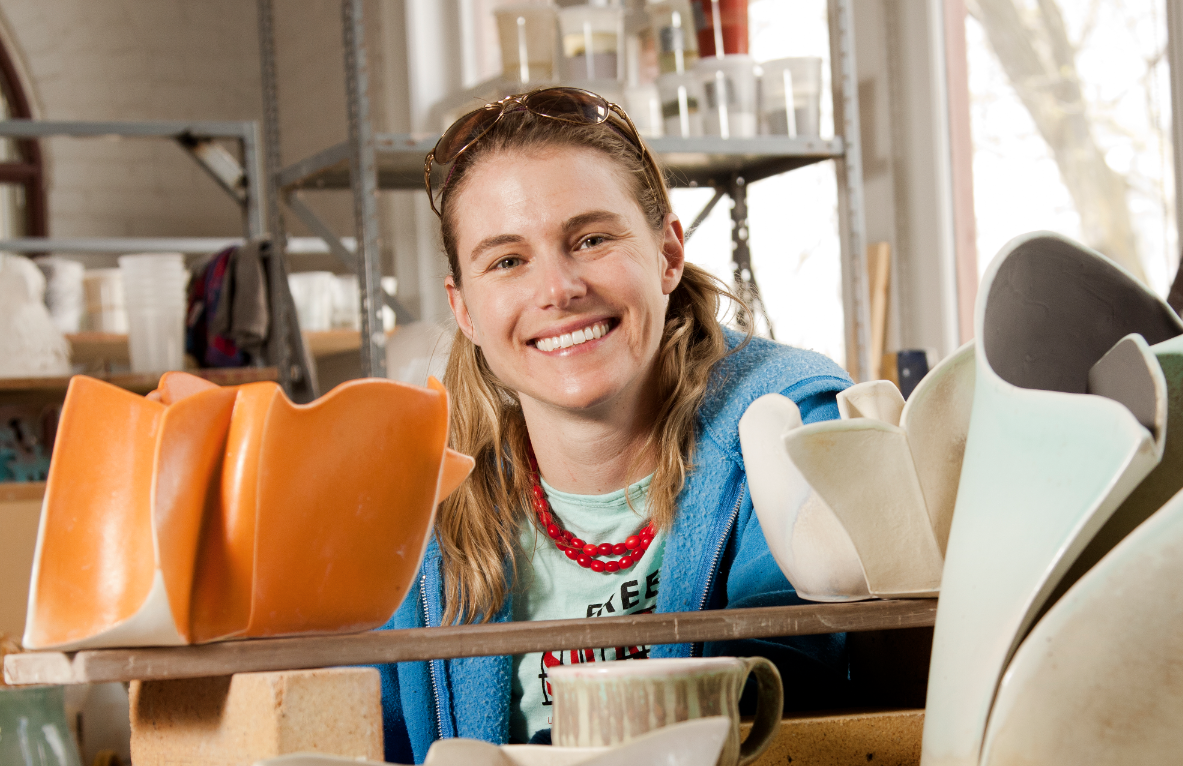
Graduate student Alexandria Knipe of Carbondale, Colo., will travel to Turkey to conduct research on ancient Islamic pots on a Fulbright fellowship. She will also continue to make pottery, and with the help of a translator, will teach ceramics at Erciyes University in Kayseri, Turkey.
Knipe is a Master of Fine Arts student with an emphasis in ceramics. She plans to graduate in December 2012 or May 2013. She received a bachelor's in Fine Arts from the University of Minnesota in 2004. In 2000, she received degrees in Environmental Studies and Religious Studies from Eckerd College.
In Turkey, Knipe will study ancient Anatolian, or Turkish, pottery that was produced from the 9th to the 14th century C.E., when three neighboring empires rose to power — the Abbasid, Fatimid and Ayyubid empires. These empires were thriving ceramic centers, Knipe said, and she will research how the empires influenced Anatolian ceramics.
"These pots were some of the first pots that I ever fell in love with, because of their surfaces," she said.
The surfaces are unique, Knipe said, because the pots are designed to look like Chinese porcelain. They are made out of a different type of clay and fired at a much lower temperature, and the glazes are layered in elaborate patterns.
Knipe will learn about the Turkish culture through the "shared language" of pottery, an experience she has already had outside of the United States. In summer 2010, she traveled to Burma on a grant from the National Council on Education for the Ceramic Arts. There she studied Burmese culture and ceramic traditions.
"Last summer when traveling to Burma, I found myself sitting on a dirt floor in a dimly lit bamboo pottery studio," she said. "The family that I was with did not speak a word of English and I could only say a few words in Burmese, but there was a feeling that we already knew each other. Clay was our common language."
Knipe is excited to make pottery in a foreign country for the first time.
"I have never done that and it will be full of many challenges that will push my work in new directions," she said. "The materials that I will work with are all different, different clay and glaze materials. There will be a lot of failure, but during times of high failure there is also a high potential for discovery."
Pete Pinnell, professor of ceramics in the department of Art and Art History, said Knipe will learn about the traditional Turkish pottery, which includes some processes that are different from what is commonly practiced in the U.S.
"Like many of us in ceramics, Alix is interested in historical pottery from around the world," he said. "Pottery is a reflection of the culture that produced it. Besides learning other techniques and processes, Alix will have the opportunity to learn a great deal more about Turkish culture."
Knipe said her passion for art comes from her parents, both artists.
"When I was little I didn't get Barbies, I got scissors and paper," she said.
The Fulbright Program, established in 1946 and funded by the U.S. Department of State, is designed to foster understanding between the United States and other countries. The U.S. Student Fulbright program gives recent graduates, graduate students and young professionals the opportunity to conduct research, study or teach in one of the 155 countries that the program operates. The Fulbright program is the flagship international education program sponsored by the U.S. government. About 8,000 grants are awarded annually, and about 1,600 of those grants are awarded to U.S. students.
Knipe is the sixth Fulbright from UNL announced this spring. At least three more will be featured.
- Christine Scalora, Undergraduate Studies